What is sustainable accommodation, really? And how the heck do you find it before traveling?!
There’s more to sleeping than meets the eye.
Where you choose to rest your head while on the road is a major factor of your travels’ impact. I’m not just talking carbon footprints—from destroying housing markets to sustaining entire villages, tourist accommodation has the power to transform communities. For better or for worse.
Consciously choosing sustainable accommodation when traveling is one of the best ways to travel responsibly and ensure you have a net positive impact on the place and people you’re visiting.
Problem is, finding sustainable accommodation isn’t always easy, and it’s not always clear what’s actually sustainable.
Being responsible does take more time and critical thinking, but a bit of extra effort on your part can go a long way to support local people. And, you know, prevent further destruction of our (already rather doomed) Earth.
To give you a little nudge in the right direction, here’s how I find—and assess—sustainable accommodation when traveling.
Here’s what you need to know about sustainable accommodation
- What is responsible or sustainable accommodation?
- What ISN’T sustainable accommodation?
- Examples of responsible/sustainable accommodation
- How to find sustainable accommodation for your trip
- How to support sustainable initiatives long-term
- What NOT to do as a guest
- More on sustainable travel
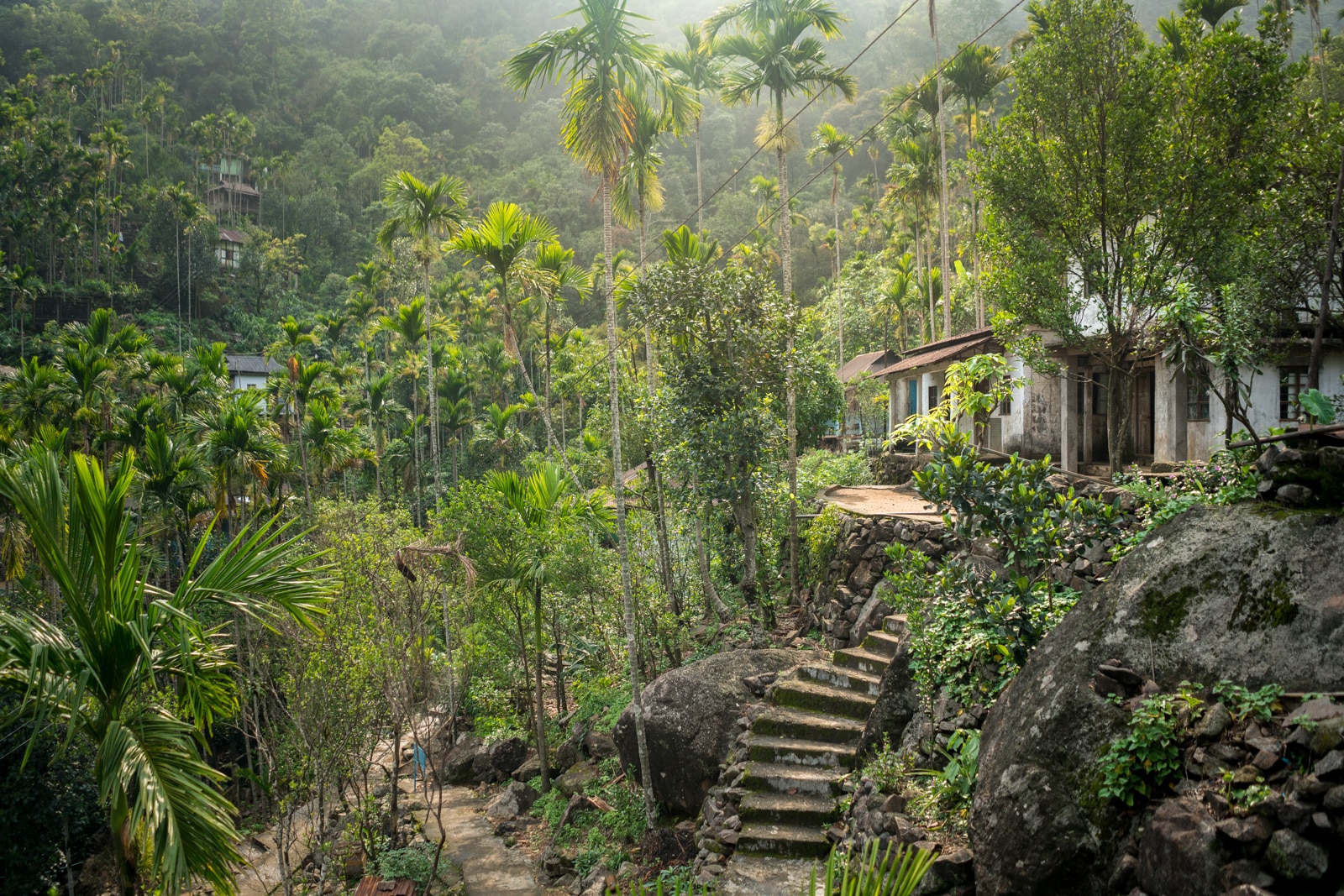
A Khasi homestay in Nongriat, India. Khasi people, known for their living root bridges, have a deep respect for their environment and go to great lengths to preserve it.
What does “responsible” or “sustainable” accommodation actually mean?
Errrrbody be using and abusing these buzzwords, but many don’t understand what they actually mean in regards to travel.
“Responsible” travel choices are all about making decisions that are good for local people and environments in the short-term.
“Sustainable” travel is the long-term goal, where your travel choices support systems that will benefit locals and their environments for years to come. Truly sustainable systems are ideally run primarily by the locals themselves.
When it comes to accommodation, “sustainable accommodation” often implies environmentally conscious options, while “responsible accommodation” likely describes people-centric or ethical travel offerings.
I’m here to say that sustainable accommodation should benefit locals, have low environmental impact, and encourage respect and preservation of culture.
… but also, let’s not drown in semantics. To be honest, I don’t actually give a damn what -able you use, so long as you make choices that support locals and don’t destroy the earth. Words are just words; action is what matters here.
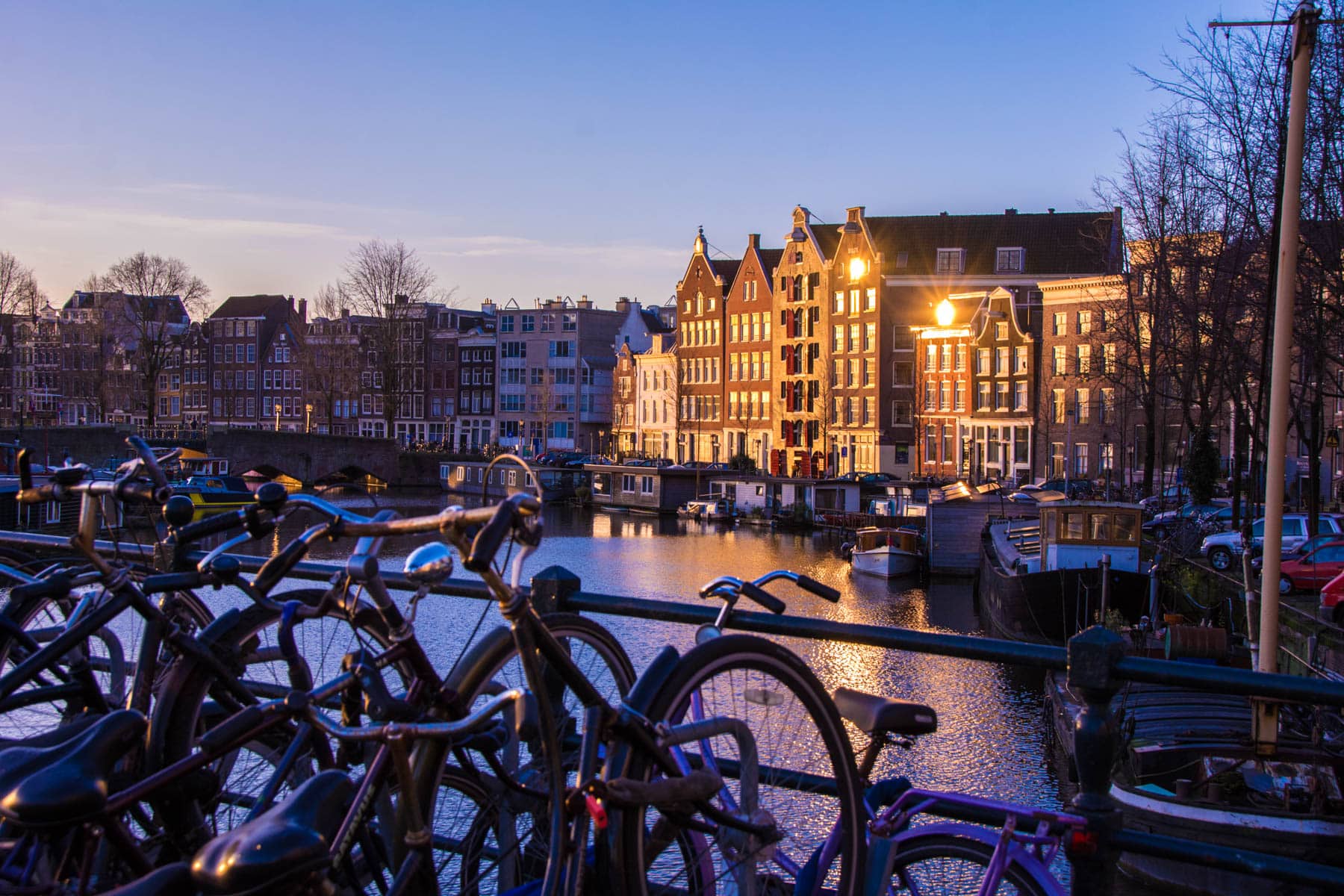
Amsterdam is beautiful—and quite sustainability-minded!—but the city is struggling with unsustainable overtourism issues like Airbnb overuse.
What ISN’T sustainable?
Businesses that are wasteful, damaging to the local environment or culture, and/or exploitative of their workers are not sustainable.
Mega cruise ships are the perfect example of unsustainable accommodation/tourism. They’re wildly polluting—both in their fuel usage and how they dump their waste into the water—they encourage fast-paced, culturally-isolated mass tourism that destroys destinations and has limited benefit for local tourism businesses, and their multinational setups allow corporations to evade labor and health regulations for their workers.
(Can you tell I despise cruise ships?)
Not every kind of unsustainable accommodation is as horrific as cruise ships, but you’ll find similar issues in many hotels around the world, especially those catering to large-scale group tours, generic package trips, and other low-cost, high-volume endeavors.
Urban Airbnbs are a different kind of unsustainable. In popular cities like Amsterdam, the prevalence of (illegally run) Airbnbs is causing a shortage of affordable housing for residents and problems with destructive or noisy guests. Amsterdammers are angry; clearly the setup isn’t sustainable.
Though Airbnb can be useful for finding places to stay in less busy areas, it’s best to avoid it in major metropolitan areas unless it’s heavily regulated.
How can you tell a hotel isn’t sustainable?
Responsible tourism is like ~*so in*~ right now, and many businesses capitalize on people’s good intentions without doing anything in return.
This is called greenwashing: when a business claims it’s doing something environmentally friendly for marketing but actually isn’t doing sh*t. You know, like those little cards in hotel bathrooms recommending you don’t leave your towel on the floor to save the planet/rainforests/etc.
There are a few ways to assess if a business is greenwashing, but the simplest rule of thumb is: if self-proclaimed “sustainable” accommodation doesn’t clearly state why they are sustainable/environmentally friendly, they’re probably full of BS.
When assessing whether a hotel/guesthouse/campsite/cardboard box is actually sustainable or environmentally friendly, beware of the following:
- Large foreign-run/international chains: Big hotel chains are rarely interested in sustainability for sustainability’s sake—it’s a marketing concern at best. International chains are about volume and scale, which are usually enemies of sustainability.
- Abuses of the phrase “eco” and other buzz words. Again, if a hotel flaunts phrases like environmentally-friendly, responsible, eco-, etc. without saying WHY… they definitely don’t know sh*t. Knowledgeable establishments aren’t afraid to explain why they’re a sustainable choice.
- Outsiders claiming to be local: Some businesses masquerade as “local” despite being run by outside companies. Be wary of establishments secretly owned by bigger corporations, or outsider-run businesses disliked by the community.
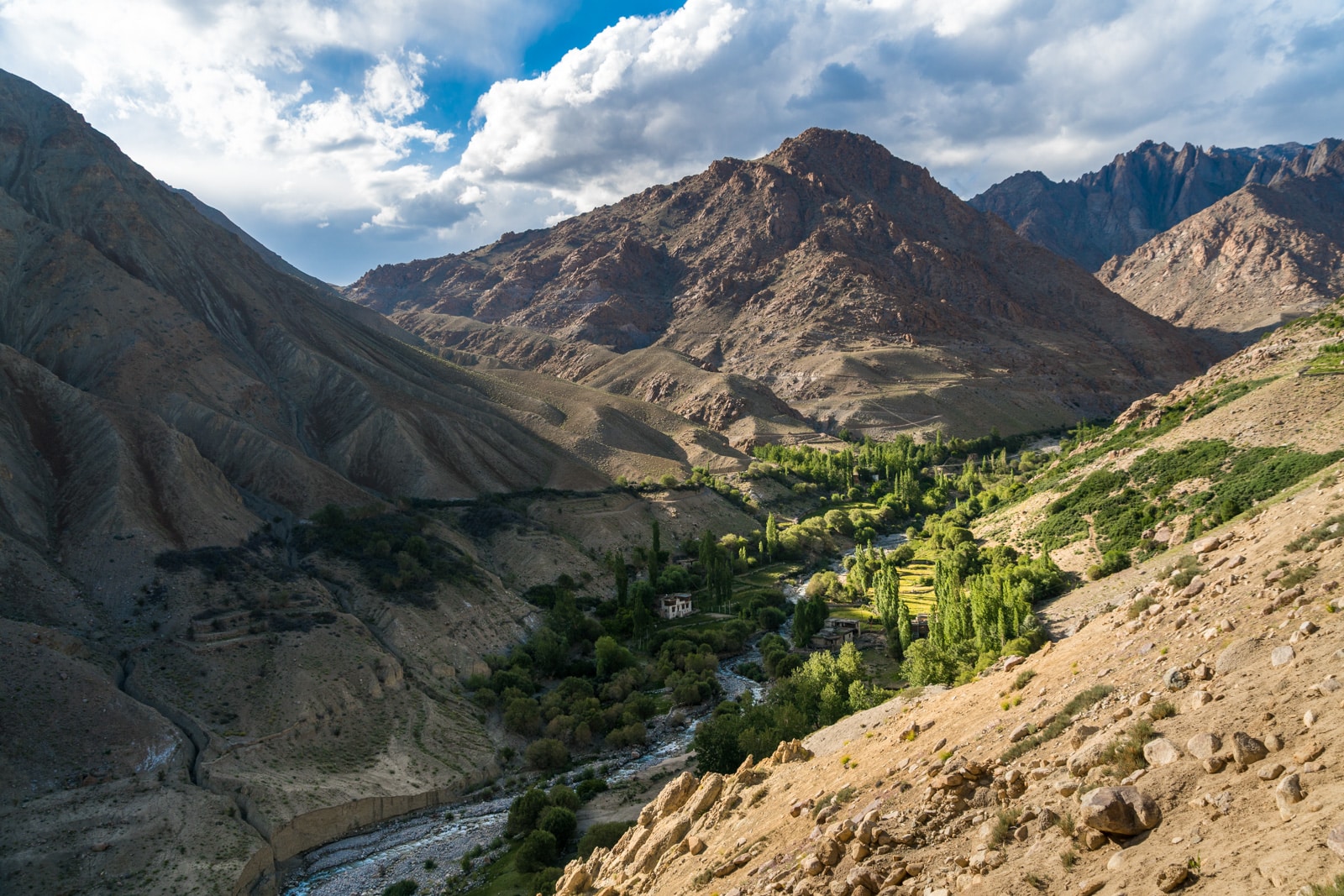
The Ladakh region of India is ripe with low-impact village homestay choices for trekkers.
Examples of actually sustainable accommodation
Confused or unsure as to what I mean? Don’t be!
Finding sustainable accommodation means choosing the option that best supports locals, has minimal environmental impact, and doesn’t destroy local culture.
Don’t freak out if you can’t find an option that checks all three boxes, or can’t afford the one that does. Work with what’s available for you.
For a more practical look, here are several types of accommodation I suggest looking for when searching for sustainable places to stay.
Homestays
Homestays are a kind of guesthouse run by a local in their own home. They’re my favorite kind of sustainable accommodation, and a great way for travelers to get a taste of home life.
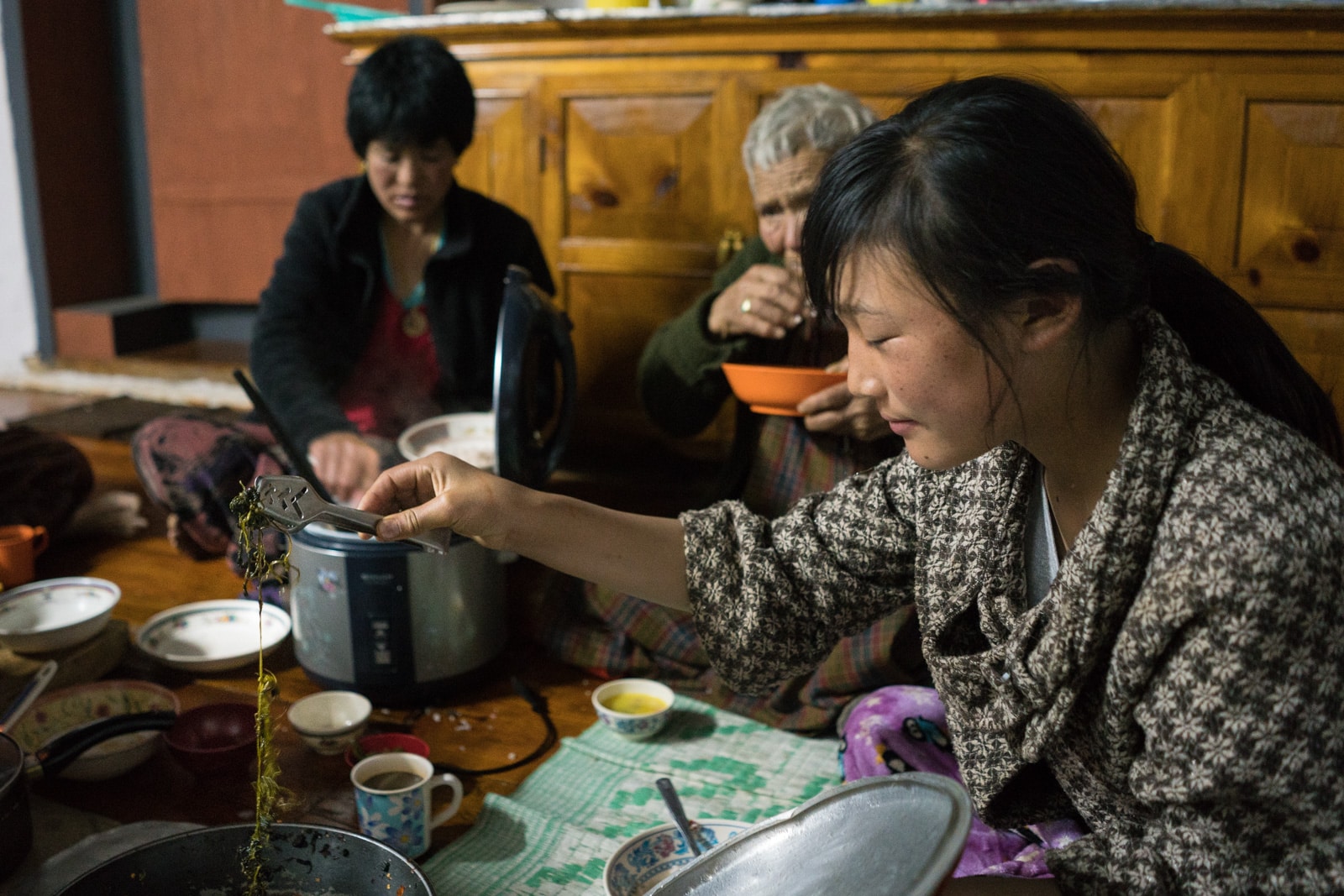
Dinner with my homestay family in Phubjika Valley, Bhutan.
Why are homestays sustainable?
- Your money often goes directly to the local family running it, rather than through a corporation, middleman, or booking platform. That means more profit for the family!
- They’re already part of the local landscape; no need to build big, ugly, or invasive hotels.
- More local interactions and the chance to learn about cultures straight from the source.
- Hosts usually serve local, homemade food to their guests, often purchased from other small businesses or harvested from their own land. The less mass-produced or imported food, the merrier.
Examples of sustainable local homestays
- PECTA homestay network in the Pamir region of Tajikistan
- Aheibam Homestay: A small home on the edge of Loktak Lake in India, run by friendly Mr. Maipakchao who works with other community members on education and conservation efforts.
- Yeganyan’s Guesthouse: Somewhere between a homestay and a guesthouse—with a a friendly host family who makes their own wine—just like many homestays throughout Armenia.
Pros of homestays
- Local everything. What more do you need?
- Often cheaper than hotels or big guesthouses
- More personal
Cons of homestays
- Infrastructure often very basic
- Less privacy
- Can cause tensions in local communities if guests don’t behave
Eco lodges, eco resorts, and eco hotels
“Eco-“ can be applied to all kinds of things—sometimes for no real reason at all—but generally it’s accommodation where low environmental impact is at the forefront of its design. Eco accommodation is also often in more remote, natural areas.
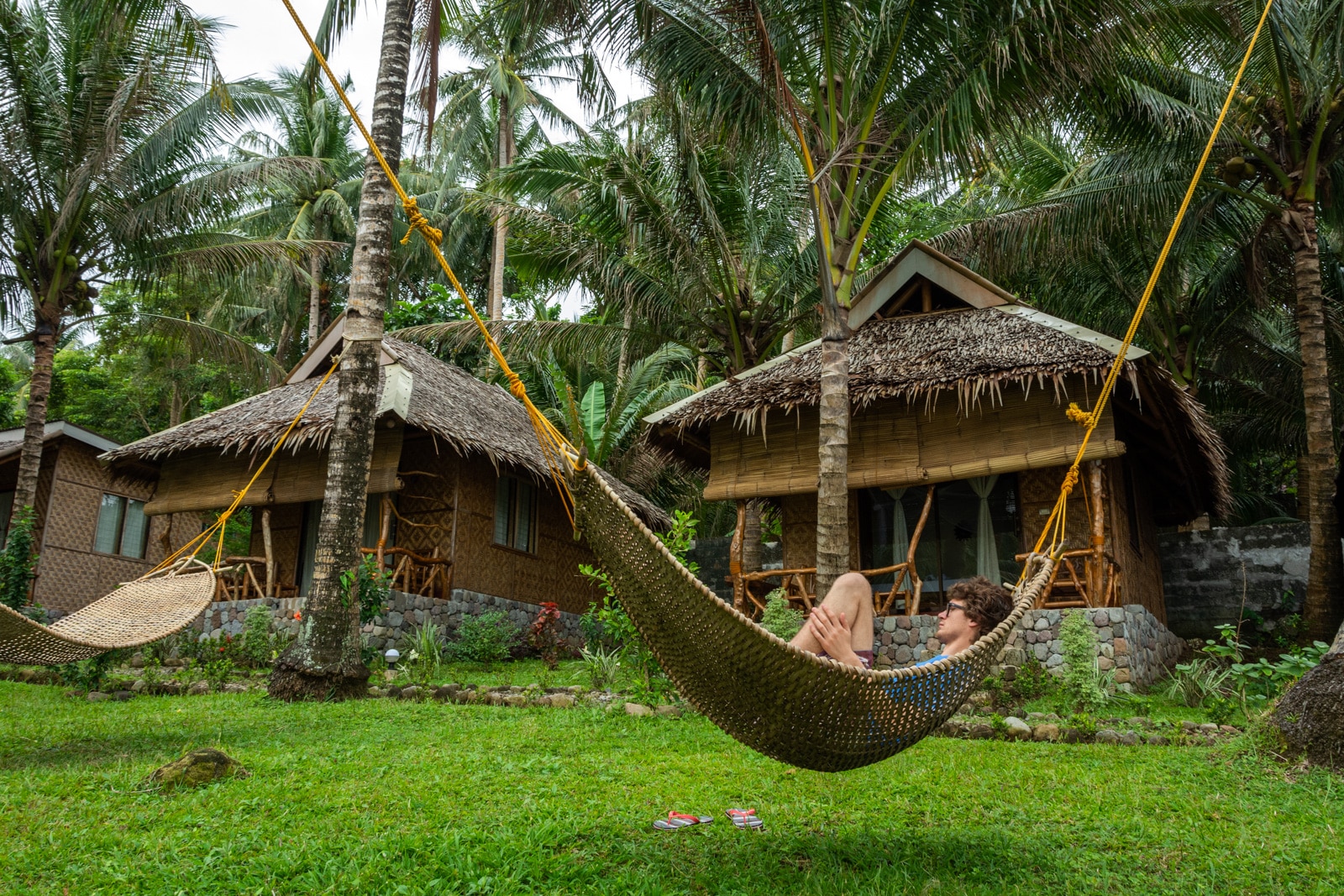
Volcan Eco Retreat is a sustainable dive resort on Camiguin Island in the Philippines, where I stayed with family in 2014. The owners and staff protect coral reefs in the surrounding area from fishing, and have gradually restored them over the last couple of decades.
Why are eco lodges, eco resorts, and eco hotels sustainable?
True eco accommodation makes efforts to reduce waste and energy usage, use renewable energy, avoid using detergents and soaps that destroy the environment, etc. Many also support local conservation efforts, or purposefully employ locals to provide income alternatives to destructive practices such as logging and poaching.
Examples of sustainable eco-lodges
- Cristalino Lodge – Lodge in the Brazilian Amazon where solar powers rooms and water heating, the organization monitors and funds preservation of tens of thousands of acres of land around it, and offers classes to visitors about local ecology.
- Atlas Kasbah – Award-winning eco lodge in Morocco’s Atlas Mountains where water is purified on-site, renewables power the establishment, materials are sourced from local communities… and then some!
Benefits of eco-lodges, resorts, hotels
- In natural areas
- Often luxurious or well-designed
- Employ local workers knowledgeable about the area
- Your money also supports conservation
Cons of eco-lodges, resorts, hotels
- More expensive
- Sometimes hard to reach
Accommodation run by or employing marginalized people
In non-NGO jargon, “marginalized groups” basically means people who have been screwed by local society and don’t have the same access to opportunities as others thanks to racism/xenophobia/sexism/etc.
Every region has its own issues, but common marginalized groups include women, refugees, Black and indigenous people, local ethnic or religious minorities.
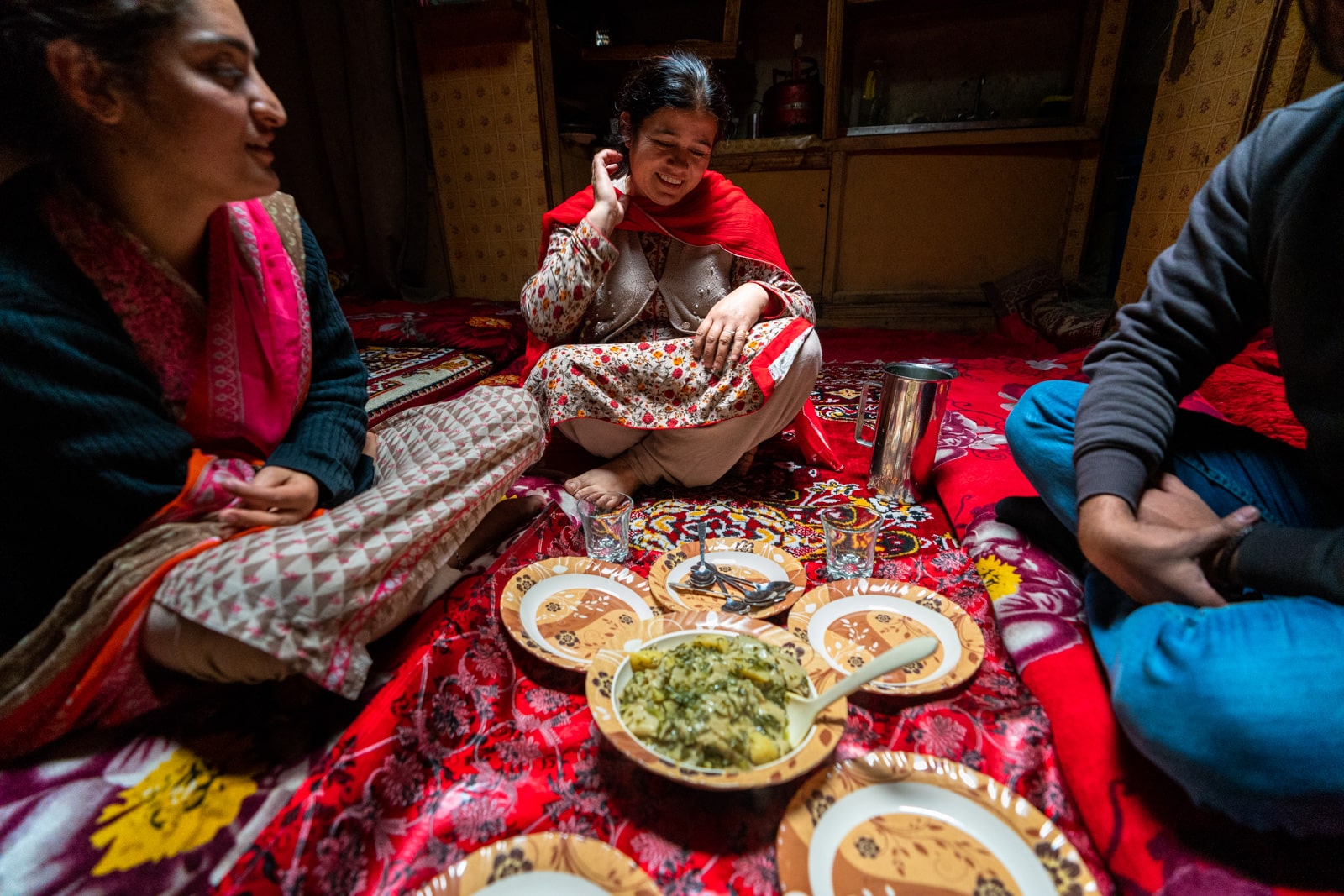
Homemade meal at a women-run homestay in Pakistan, which I booked through a platform run by a female entrepreneur.
Why is accommodation supporting marginalized people sustainable?
Sustainability isn’t just about saving the environment. For systems and people to flourish long-term, everyone must be taken care of, not just [cis white] men. (The term here is “intersectional environmentalism”—here’s what that means.)
Many marginalized people depend on income or support from unreliable or unsustainable sources: women depending on men for income, refugees depending on relief schemes, etc. Supporting their businesses with your tourist money is the most sustainable way to support their efforts and their independence.
Pros of accommodation supporting marginalized groups
- Dismantling sh*t societal systems! Woop!
- Access to a unique and/or alternative perspective
Cons of accommodation run by marginalized groups
- Sometimes outside organizations exploit people’s marginalized status for marketing purposes
Examples of accommodation owned/run by marginalized people
- Hubbard Mansion B&B: A charming Black-owned bed & breakfast in the heart of New Orleans.
- Ladakhi women’s homestays: Homestays intended to support local women along trekking routes throughout Ladakh, India
- Magdas Hotel: A hotel in Vienna, Austria that specifically hires refugees to help them get on their feet in their new home.
- Lund Resort at Klah ah men: Award-winning resort run by Tla’amin tribe members on Canada’s Pacific Northwest Coast.
Couchsurfing
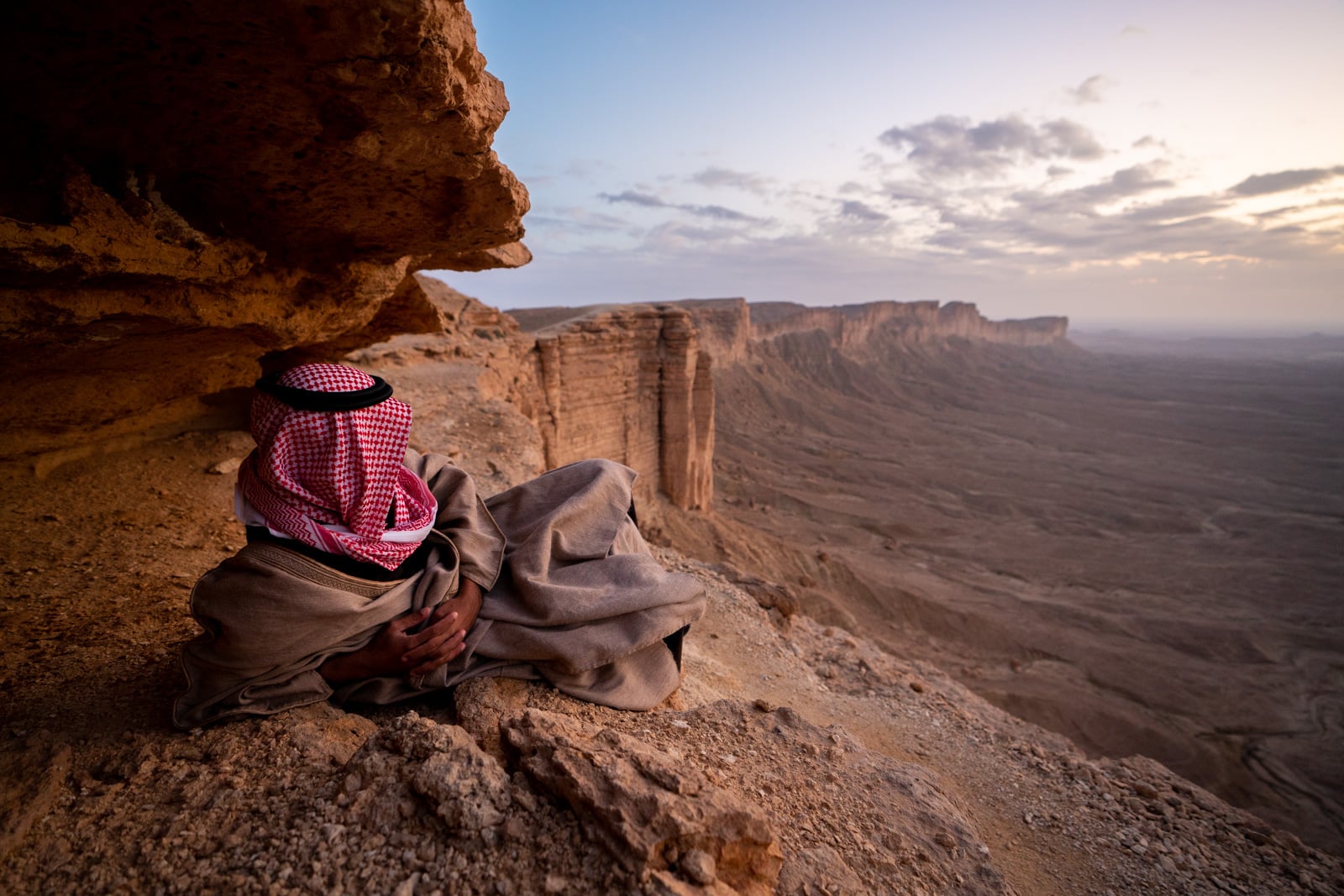
Hanging out with a Couchsurfer at the Edge of the World in Saudi Arabia
Couchsurfing is an online platform where travelers can connect with other travelers to be hosted in their homes free of charge. Or you can just meet for coffee. Up to you. At this point, I’ve used it to meet locals on four different continents!
Why is Couchsurfing sustainable?
Though it has its flaws, Couchsurfing is the most accessible way for budget tourists to interact with locals and share ideas. Surfers can stay in local homes and enjoy local food—no extra infrastructure necessary—and it encourages travelers to value local interactions, rather than selfies or Top 10s.
Pros of Couchsurfing
- Accessible even for young or budget travelers
- Easiest way to meet local travelers and stay in local homes
- Couchsurfing communities are often supportive in countries where tourist infrastructure is lacking
Cons of Couchsurfing
- Money isn’t necessarily going into the local economy
- Easy for Couchsurfers to take advantage of their hosts
- Many hosts in the West expect sex from surfers
- Can be risky, especially for female travelers, if surfers aren’t discerning when choosing a host
Farm stays
Any kind of accommodation on a local farm property, often with the intent of learning more about the farming process and enjoying local food.
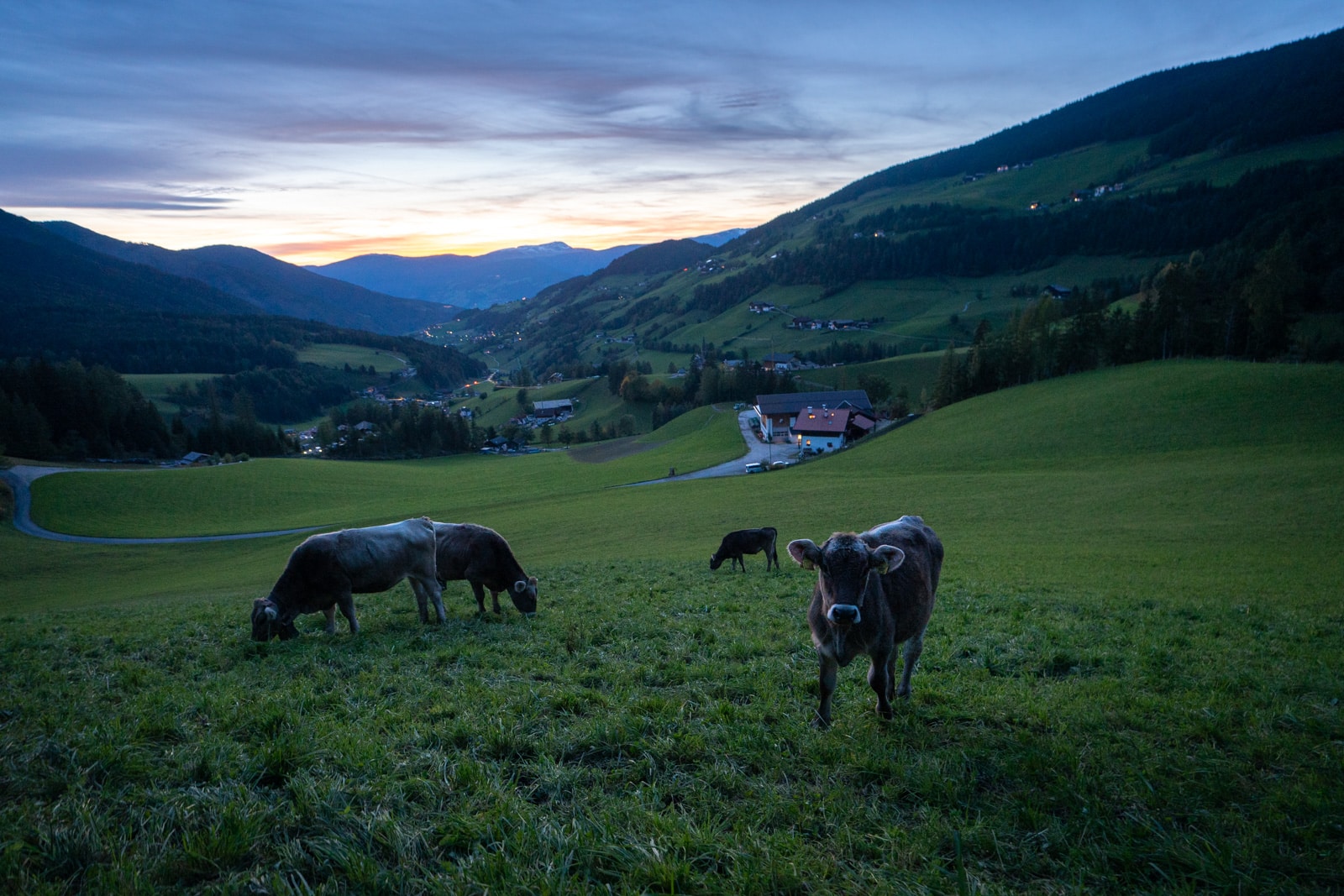
The South Tyrol region of Italy is full of Agriturismo stays where visitors can learn about traditional ways of raising cows in the pastures, rather than in industrial setups.
Why are farm stays sustainable?
Farm stays educate tourists about the origins of what we eat—an increasingly complex question in this day and age—and help small- to medium-sized farms survive in this era of highly destructive industrial farming. Also, local food!
Pros of farm stays
- Locally-sourced food and meals
- Learning about local agriculture practices
- Supporting local agriculture over mass imports and global systems
Cons of farm stays
- Often more remote and require a car
- Sometimes expensive/luxury-oriented
Examples of sustainable farm stays
- Pri Plajerju – An organic farm stay in Slovenia’s Triglav National Park where guests can sleep on the cheap in a barn!
- Ranjan’s Farm Villa – Stay in a 100-year-old villa on an organic farm in Sri Lanka
- Sierra de Grazalema – Organic farm with guest rooms in an old farm house in Andalucia, Spain
Historic and heritage hotels
Old cultural heritage sites—think mansions, palaces, castles, etc.— converted into accommodation. In layman’s terms: dope AF digs.
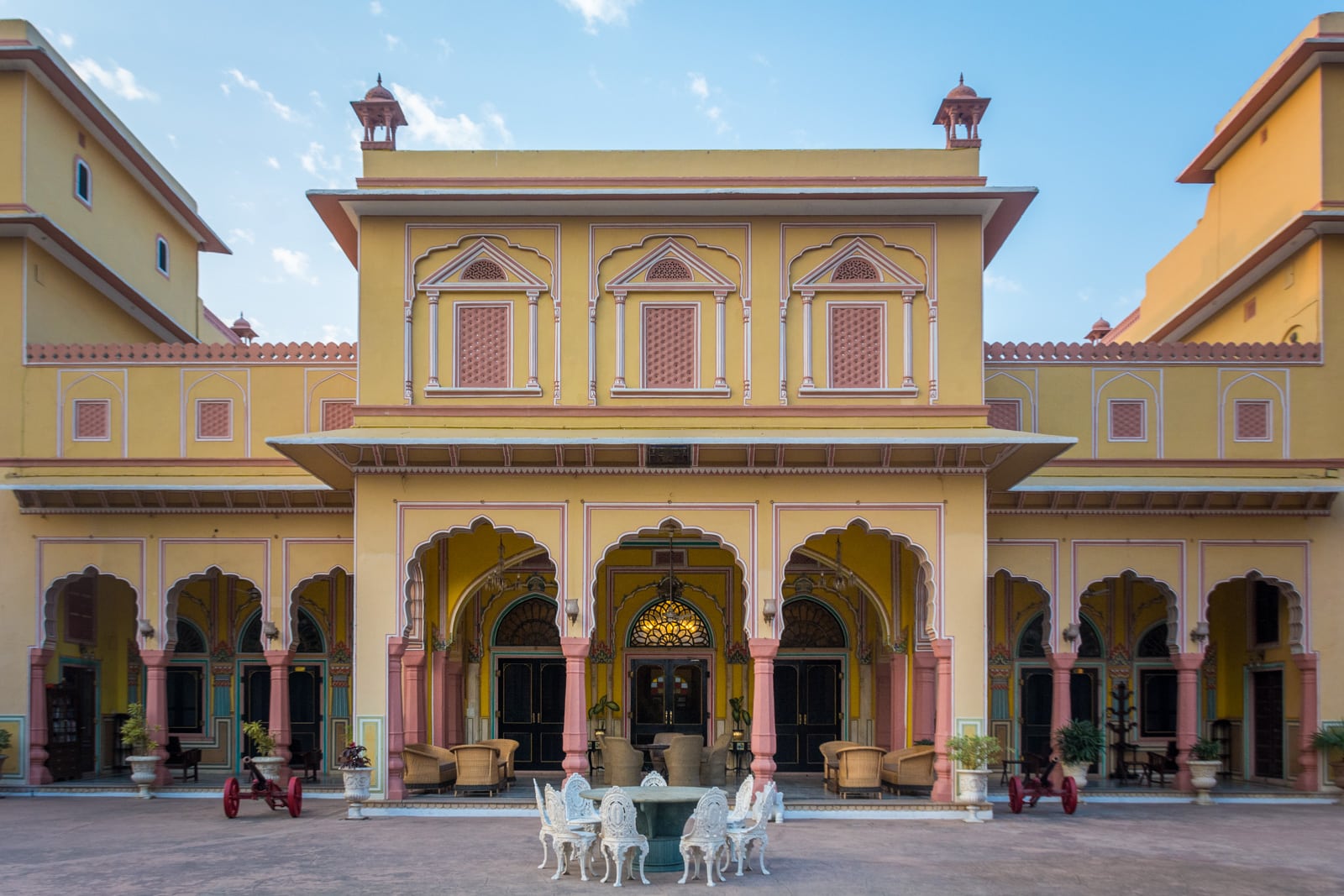
Narain Niwas is a small palace in Jaipur, India that was once a country house for an army general, but has since been converted into a heritage hotel managed by a single family.
Why are heritage hotels sustainable?
Heritage hotels help to fund the preservation of cultural heritage, something often overlooked in developing regions. Though other aspects of heritage hotels might not be sustainable—waste generation, offering imported items, outdated electrical infrastructure, and so on—maintaining cultural heritage through self-sustaining means is absolutely sustainable tourism.
Pros of heritage hotels
- They’re cool as hell, what more do you need?!
- Help to maintain cultural heritage sites
Cons of heritage hotels
- Expensive
- Sometimes run by larger corporations definitely not interested in responsible tourism
Examples of heritage hotels
- Rare India – Recommended by Mariellen of Breathe Dream Go, this is a collection of luxury heritage hotels throughout India that’s now focusing specifically on sustainability.
- Glenapp Castle – A historic castle-meets-hotel in rural Ayrshire, Scotland
- Rimphu Heritage Hotel – Renovated traditional Bhutanese home run by a family in Paro, Bhutan
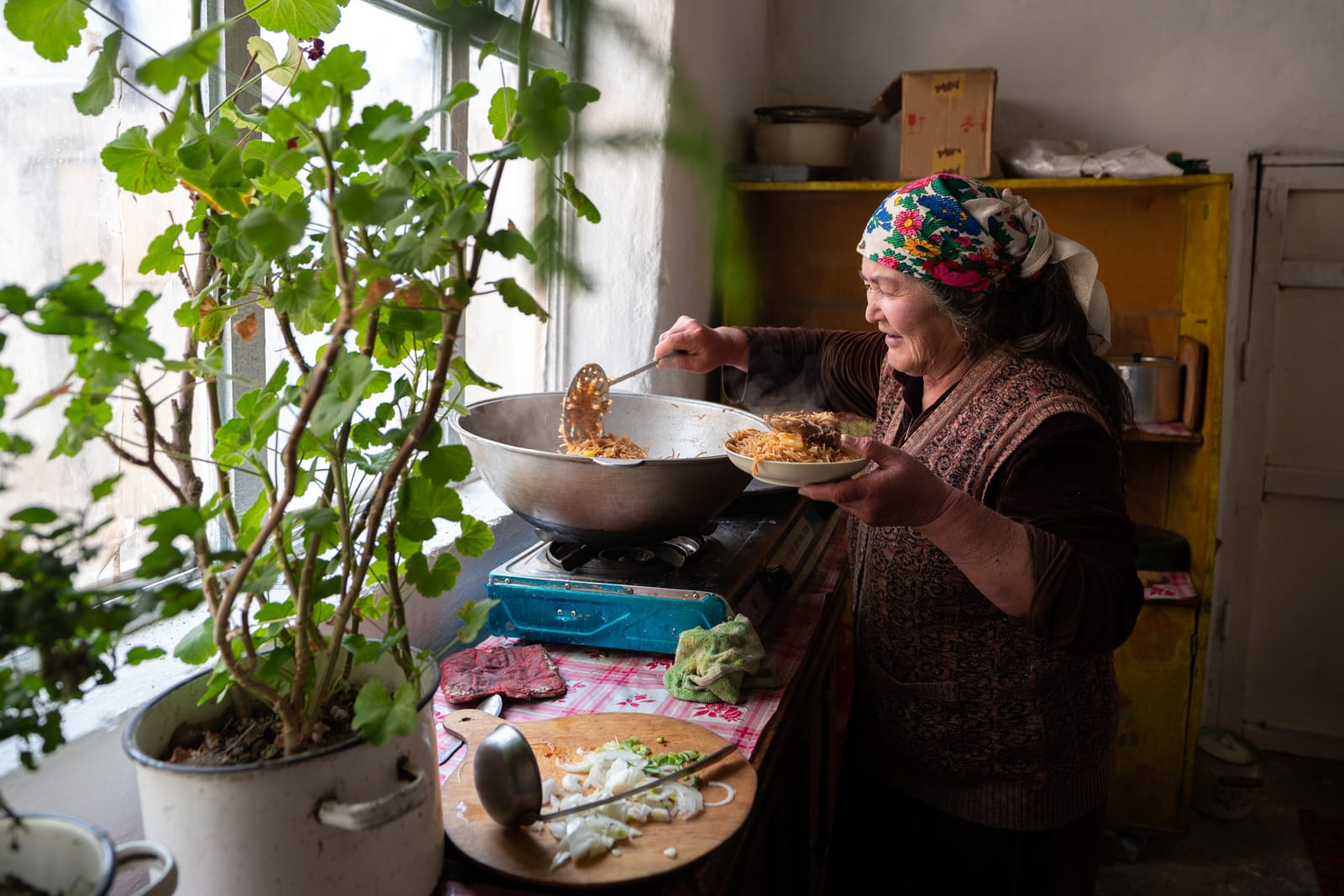
My homestay host in Shaimak, a remote and little-touristed village in eastern Tajikistan that I learned of through the local tourism office.
How to find sustainable accommodation for your trip
Until sustainability becomes a norm rather than a niche—don’t hold your breath—you might have to do some digging to find sustainable accommodation in your destination.
Sustainable accommodation websites and booking platforms
Not always helpful when going off the beaten track as I do, but these options work well in more touristed areas.
- Bookdifferent: Only lists eco-certified hotels from a list of transparent and rigorous certification organizations they approve of.
- Homestay: Lists homestays all around the world.
- Earth Changers: A collective of sustainability-focused tourism professionals who curate international travel opportunities that benefit locals as much as possible.
- Bio Hotels: Eco-hotels in parts of Europe with a heavy focus on organic food offerings
- Farmstay Planet: Farmstays in Europe
- Responsible Travel: Responsible tour booking website that also has accommodation-only options.
- Ecobnb: B&Bs and guesthouses ranked on how many criteria points they meet
Searching for sustainable accommodation online
The best sustainable accommodation options are usually specific to the country or region, and even then they might not show up in searches if they don’t know about SEO.
Some common tactics I use to find sustainable accommodation in more offbeat areas:
1. Googling any or all of the following:
- Homestays in…
- Indigenous-run hotel in…
- Family-owned guesthouse in…
- Eco lodge/eco resort/eco guesthouse in…
- Women-run hotel in…
- And so on and so forth. Be creative!
2. Reaching out to the local tourism board.
It’s literally their job to help you find what you’re looking for, and they should be happy to help you find locally-run businesses/accommodation. To find local tourism boards, search “Tourism in X” or “Travel to Y” and contact the most official looking page. They might not always respond quickly, but they know best. Hopefully.
3. Looking for hotels in weird/remote places on Google Maps.
You’d be surprised how active people are on Google Maps, even in the middle of nowhere. I’ve found a few family-run guesthouses purely by chance in strange places just by perusing Google Maps.
4. Reading up on responsible tourism in the region.
Though not accommodation-specific, blog posts and articles about responsible travel should include recommendations for a few homestays or guesthouses.
5. Waiting to see what happens.
Many small businesses don’t have a good grasp on digital marketing, and rely on handing out flyers, business cards, and other printed materials to local businesses. Keep an eye out for them in places like hostel lounges, cafes, restaurants, etc. They’re a great way to find more offbeat options.
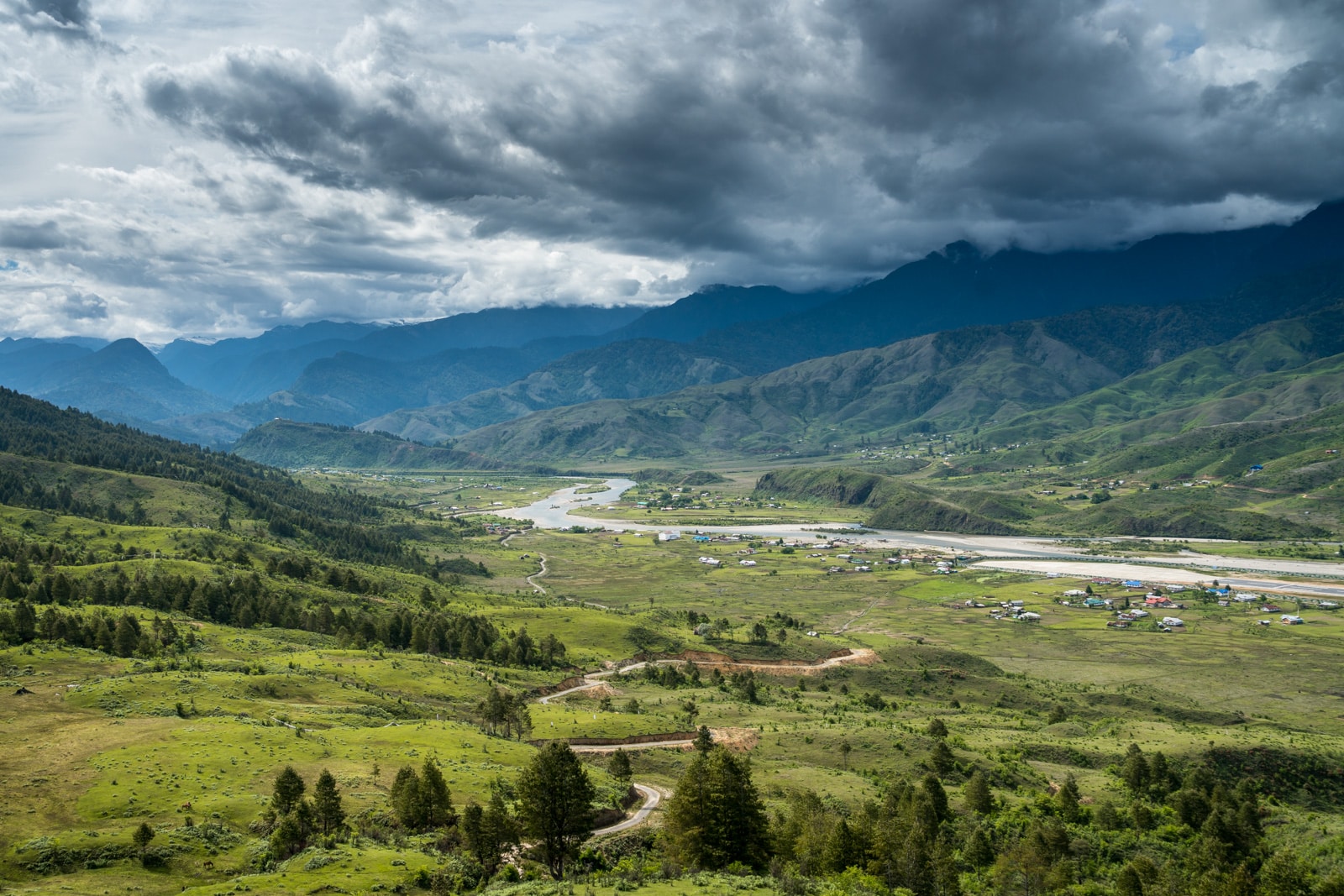
In Mechuka, a small village in Northeast India, I found my homestay simply by… showing up and looking for signs saying “homestay”. It worked!
Finding sustainable accommodation on major booking platforms like Booking.com and Airbnb
Though their main goal isn’t to be sustainable—it’s actually to squeeze as much money out of people as possible—there are still sustainable options on major hotel booking platforms if you know how to look.
Booking.com is my main go-to for finding last-minute accommodation, and it’s possible to find sustainable accommodation there. I found all kinds of homestays and locally-run guesthouses through Booking while traveling in Georgia and Uzbekistan, for example.
When searching for responsible options on Booking, I often check the following filters:
- Guest Houses
- Homestays
- Bed and breakfasts
- Farm stays
- Country houses
The results won’t be perfect, but using these filters will help you find options that are more likely to be locally-run.
TripAdvisor now has a GreenLeaders program where they clarify if a hotel is eco-friendly. However, hotels are the ones responsible for requesting the classification, and they’re not very transparent the process nor whether they check to validate claims. Use at your own discretion.
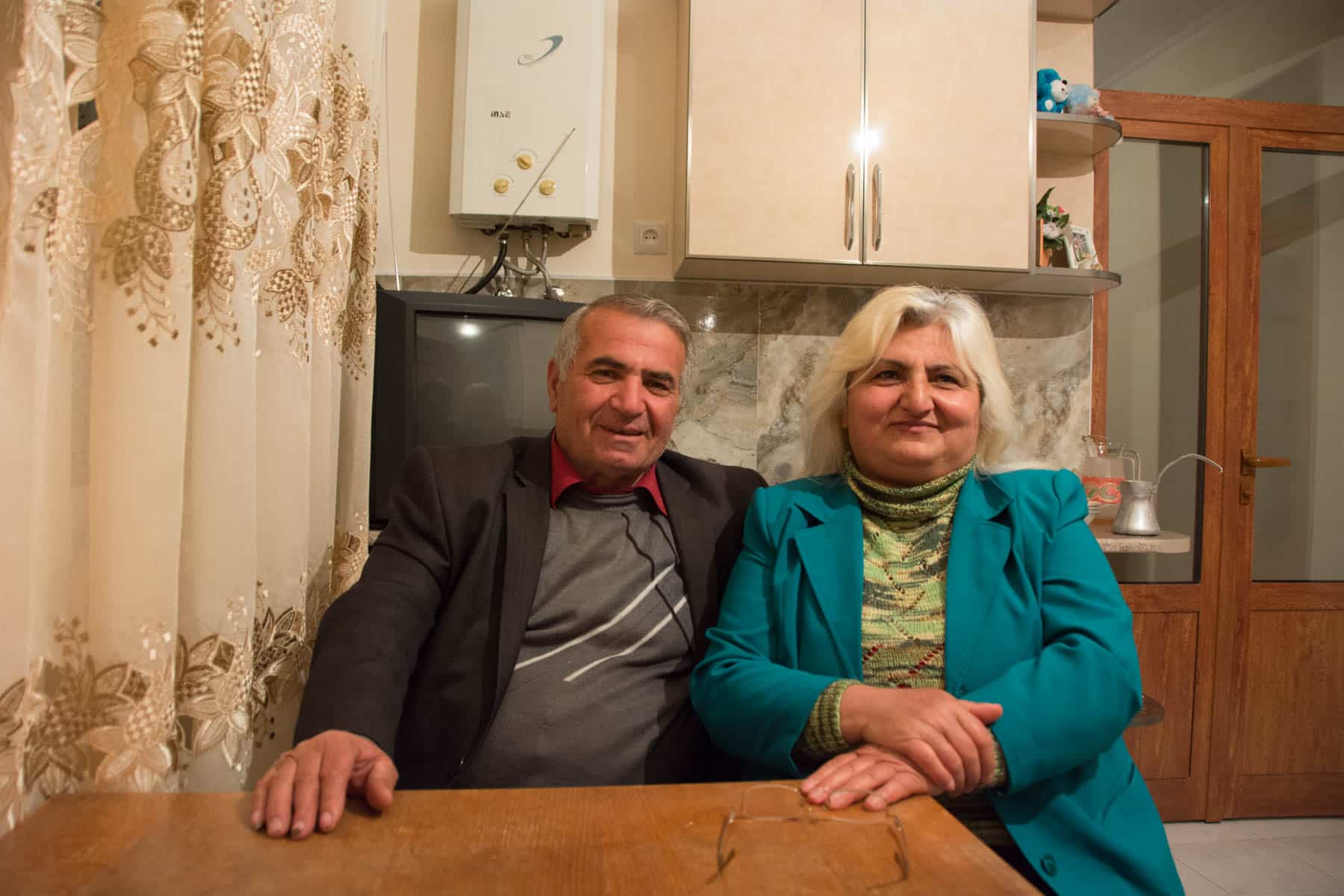
Hosts of a homestay I found via Booking.com in Yeghegnadzor, Armenia. (I ended up sitting down with them to help with setup and explain how the system works.)
Is Airbnb an ethical way to find sustainable accommodation?
Airbnb is another platform I use occasionally—mostly because I’m a sucker for good web design—but I try to avoid using it in big cities. Airbnb is known to cause all kinds of problems for locals in cities, including inflated rental prices and accommodation scarcity.
However, Airbnb also makes marketing more accessible for small business owners in many places—an important part of sustainable tourism—so I hesitate to shun it completely.
It’s best to stick to hotels/official rentals in cities and use Airbnb for more remote or unique searches if you want sustainable accommodation that doesn’t cause problems for locals.
Regional websites for finding the best sustainable accommodation
Many countries and regions have lists or accommodation networks that you can tap into… if you know they exist, that is! This list is by no means complete, but here are some regional recommendations for finding sustainable accommodation:
Sustainable accommodation in Europe
- Italy: Agriturismo – Farm stays
- France: Gites de France – Homestays and farm stays
- Austria: Farm Holidays – Farm stays
- Slovenia: Farm Tourism – Organic farm stays
- Scotland: Celtic Castles – Castle hotels
Sustainable accommodation in Central and South Asia
- Tajikistan homestays: PECTA
- Kyrgyzstan homestays: Community Based Tourism (CBT)
- Nepal homestays: Community Homestay
Sustainable accommodation in India
From Priyanka Gupta of personal growth and travel blog On My Canvas: Run through word-of-mouth, the eco homestays of community-based tourism organization Himalayan Ark in Munsiyari, Uttarakhand are an ideal respite for those seeking rural life surrounded by nature. Munsiyari is a hill station at 2,200 m, in the Kumaon region of the Himalayas in Pithoragarh district, Uttarakhand.
There are 16 homestays and 15 or so guides. Naturalists and guides can take travelers on bird watching trips, butterfly observations, and hikes, among other local activities. 95% of tourism revenue is reinvested into the community that earns through farming, wool making, and other kinds of traditional jobs.
During COVID times, only 5 of 16 homestays are functioning—these are the ones with a separate entrance. BSNL mobile connectivity is limited in the area, so bookings are mainly done through email or phone.
If you want to visit Munsiyari, email Malika Virdi, the founder and director of Himalayan Ark (malika.virdi@gmail.com). She’s now in her second term as the sarpanch(head) of the Sarmoli Jainti Van Panchayat, a panchayat set up in 2004 that looks over the common forest area where these homestays are. Alternatively, you can email Himalayan Ark directly (himalayan.ark@gmail.com).
Other recommended options for sustainable trips in India include:
-
- Homestays of India – Women-focused homestays
- Village Ways – Homestays in India, Nepal, and Bhutan
- Heritage hotels of India – Heritage hotels
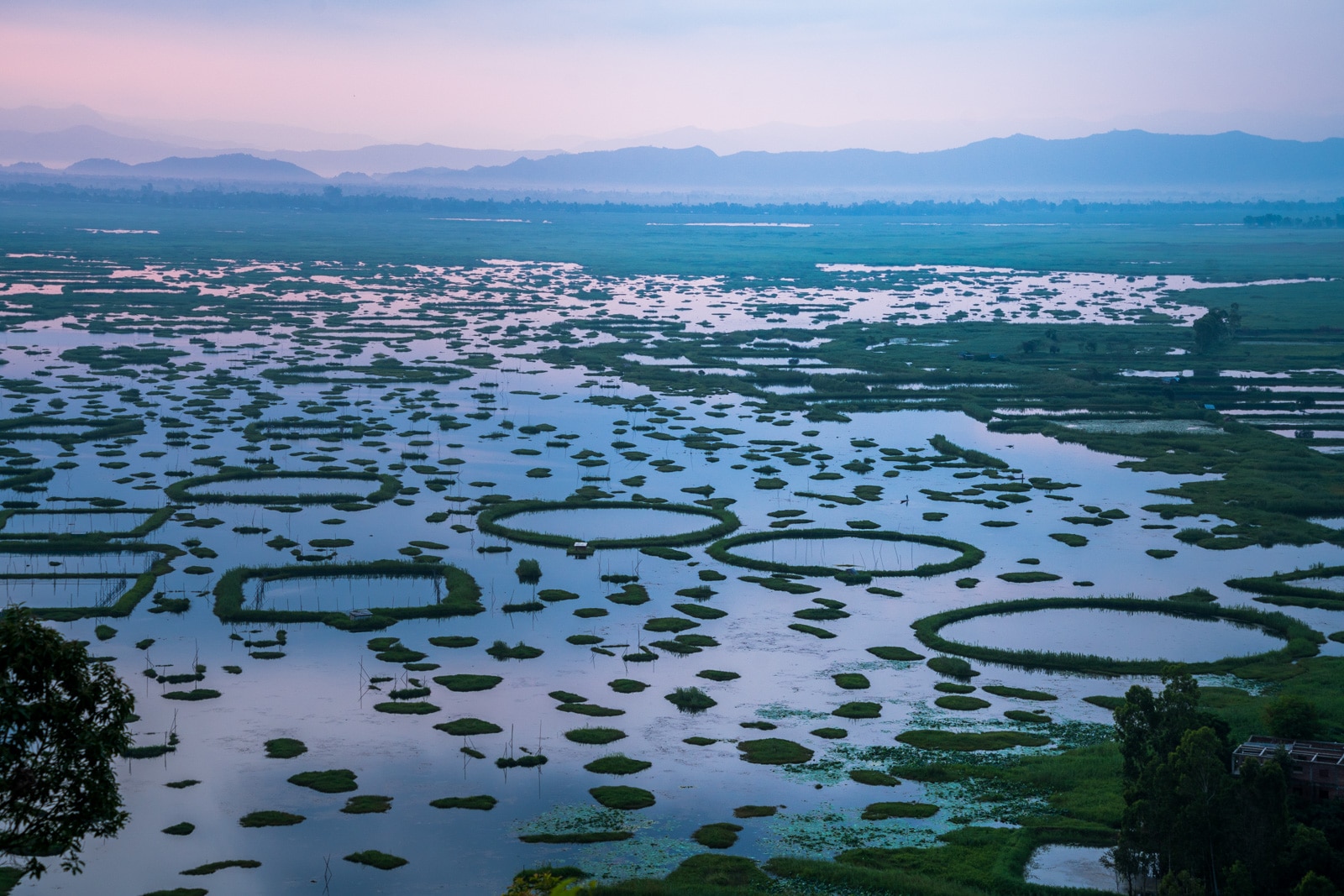
I wrote a post about India’s Loktak Lake in 2017, including mention of Mr. Maipakchao, a homestay host who also works on conservation efforts in the area. In years since, countless people have stayed with Mr. Maipakchao because of that post!
How to support sustainable local accommodation in the long-term
Supporting sustainable causes doesn’t stop once your trip is over! There are many small but impactful things you can do to support local businesses from the comfort of your own home:
- Leave them a review. Reviews on platforms like TripAdvisor, Google, and hotel booking websites can make a HUGE difference for small businesses. Same goes for blogs—writing a post about your time and providing contact information for the business can change everything. I know firsthand.
- Share your photos. If you stayed in accommodation that could use a little boost with their digital presence, consider emailing or messaging the owner with some of your photos. Some photographers get territorial about free photos, but I personally don’t mind sharing some photos with small businesses who likely wouldn’t be able to afford my rates. It’s a small but valuable token of thanks that costs me nothing.
- Recommend them to other travelers. Word of mouth is the most powerful form of marketing. If you come across a particularly awesome sustainable business, tell people about it! Gatekeeping isn’t cool, especially when it comes to supporting businesses doing things right. Tag businesses you love, write down recommendations for others, share locations. You know the drill.
- Offer help with their internet presence (while there). I’ve helped sort out Booking.com issues for homestay owners from Georgia to Uzbekistan to India, advised guesthouse owners on social media marketing, and given website advice to countless more. Getting setup online can be intimidating for a fledgling business—especially when it’s all in a language you’re not fluent in—and you never know when a bit of help might be appreciated.
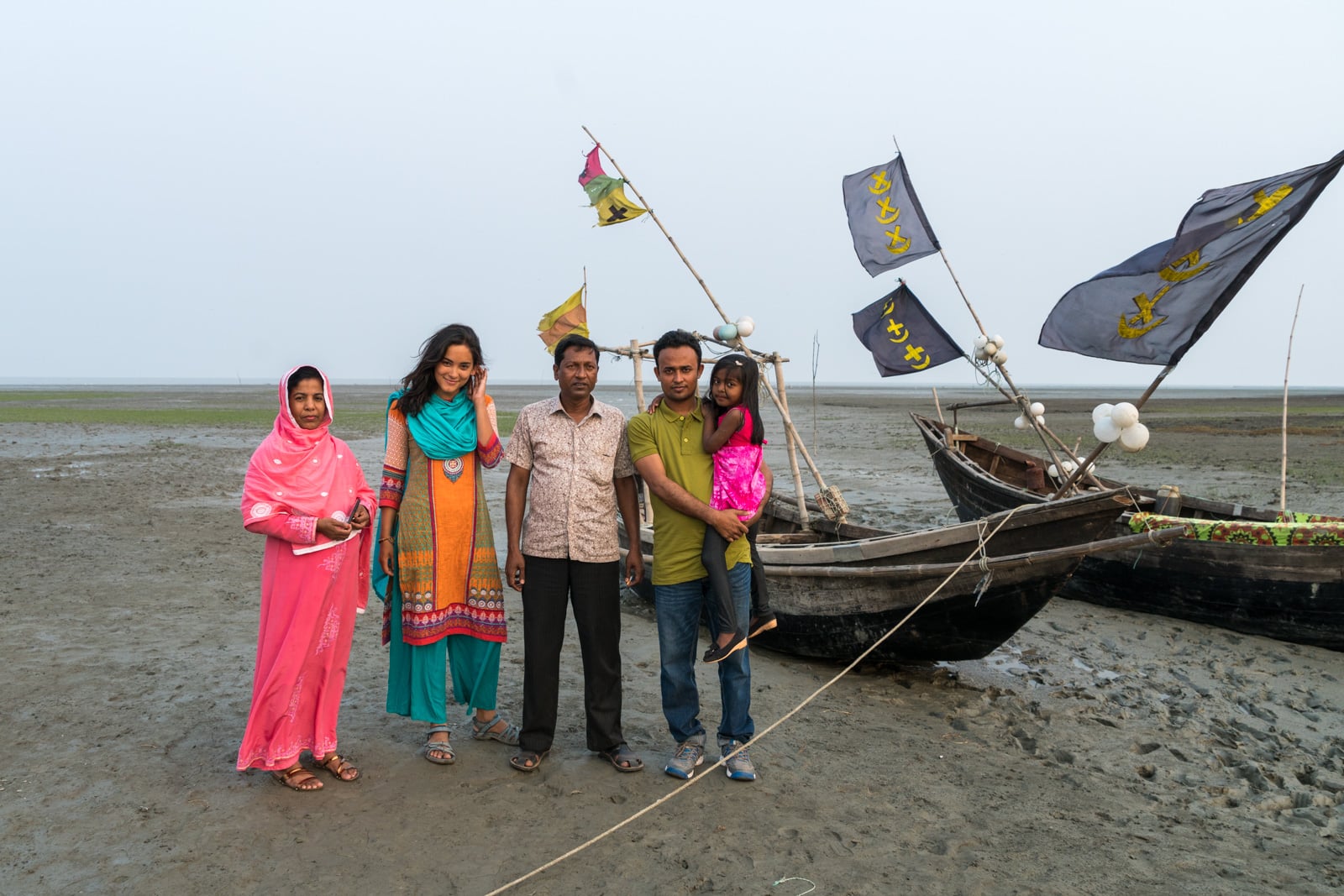
When you’re a guest in someone’s home or country—like I was here on Hatiya island in Bangladesh—it’s important to respect local culture and acknowledge what’s possible before setting any expectations. The same goes for accommodation.
A final note: what NOT to do as a guest
After years on the road, I’ve seen too many people have fits over things like squat toilets, local food, and uncomfortable beds… thus totally missing the point of seeking out “local” experiences.
Sustainable accommodation options aren’t always the shiniest or smoothest places to stay, but that’s all part of the fun. Responsible tourism and sustainable practices need to be encouraged, not defeated.
If you’re staying in local accommodation and you want to complain, think before you speak:
Why do you find it unpleasant? For example, do you dislike food because it’s too spicy/salty/oily/something else compared to your local food? Would catering to your needs be easy for your host, or would it require buying alternative/imported products that aren’t as sustainable as local goods? If the latter, deal with it and remember you’re not in your home country.
Is it reasonable for you to demand change? Mattresses and Western toilets might be reasonable requests in a city or high-end eco-resort, but asking a budget homestay in a remote village to install an expensive ceramic sit-down toilet? No, bro.
Polite, constructive criticism is useful for business owners, but if your tourist problems require unsustainable solutions, sometimes it’s best to keep your woes to yourself.
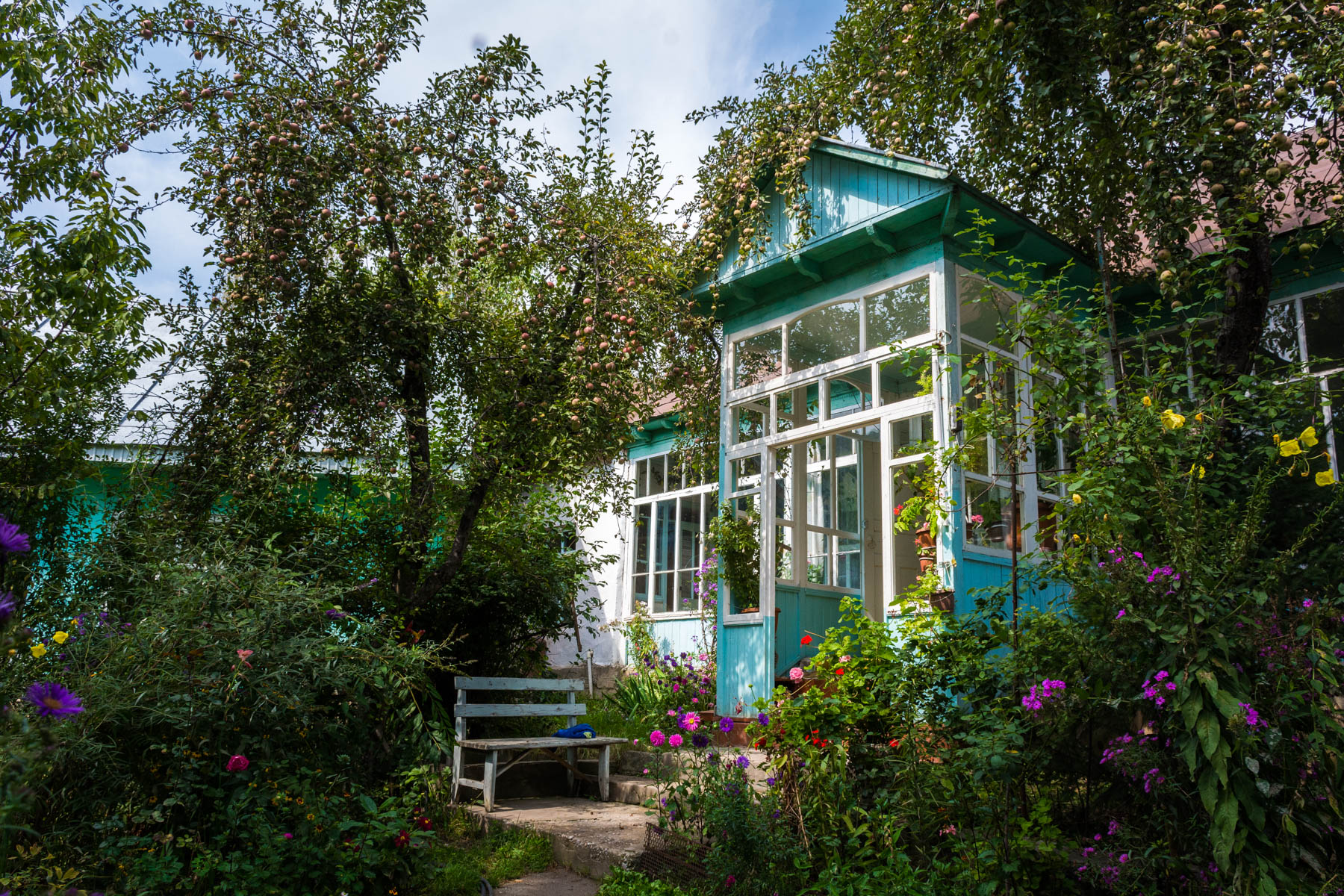
A community homestay in Arslanbob, Kyrgyzstan
More posts on responsible travel and sustainable tourism
- 27 ways to travel like a decent human being
- A reality check on carbon offsets for flights
- Here’s what’s up with homestays in Pakistan
Have you stayed anywhere particularly memorable—and sustainable—in your travels? Tell me in the comments!
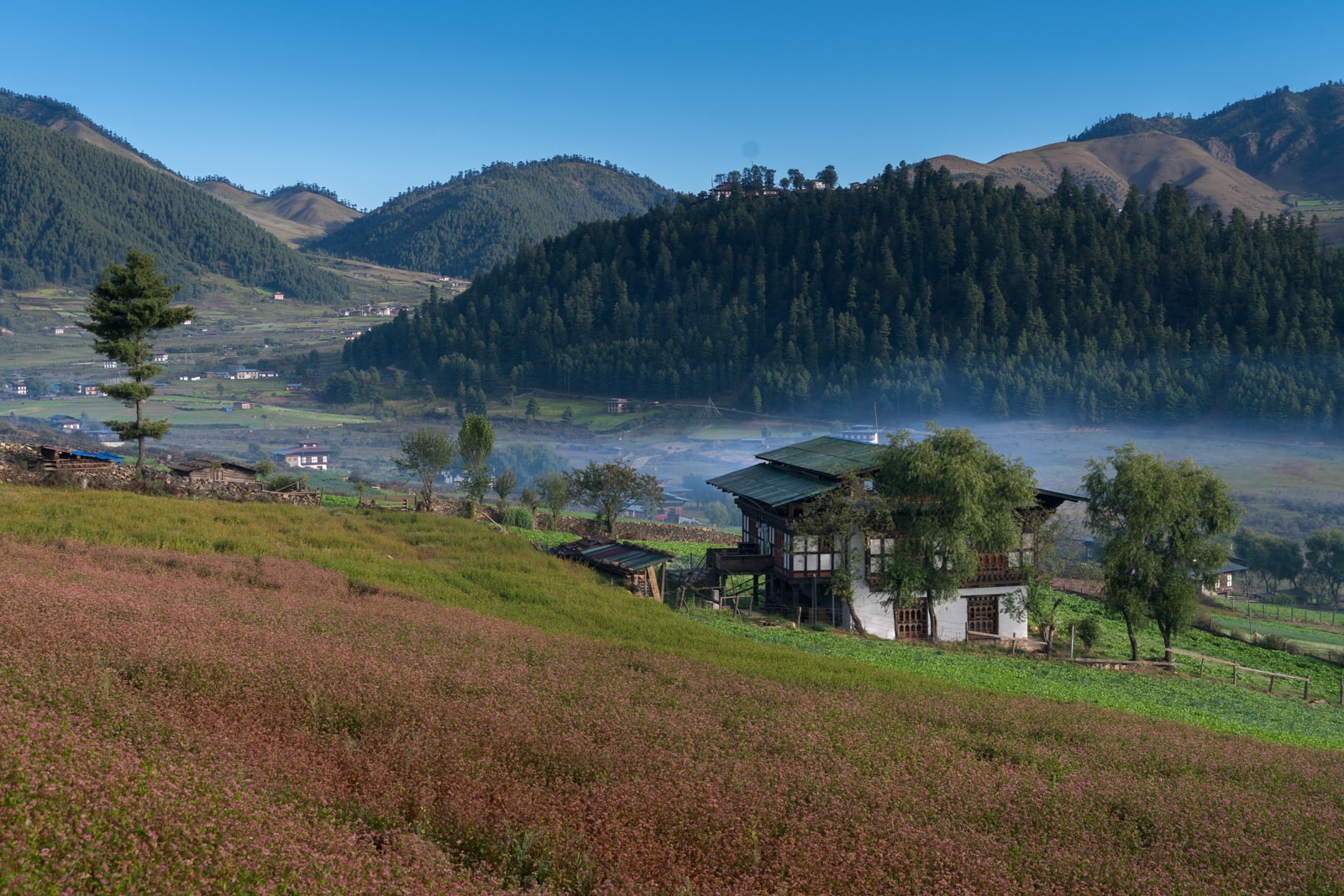
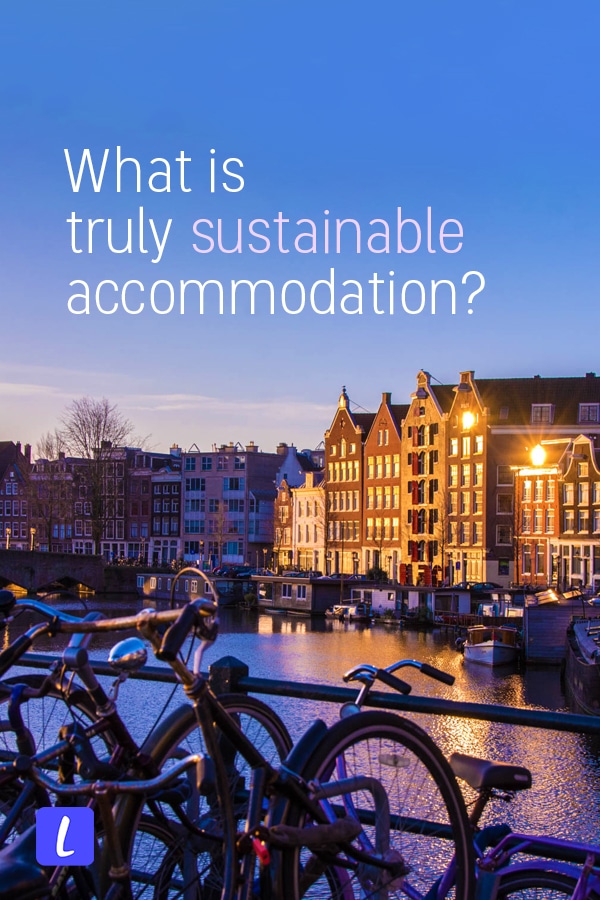
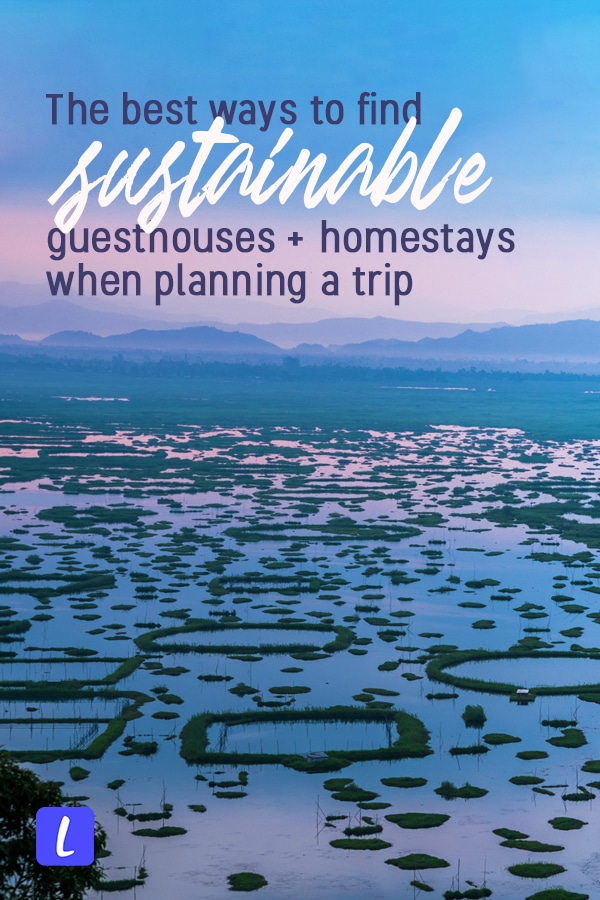
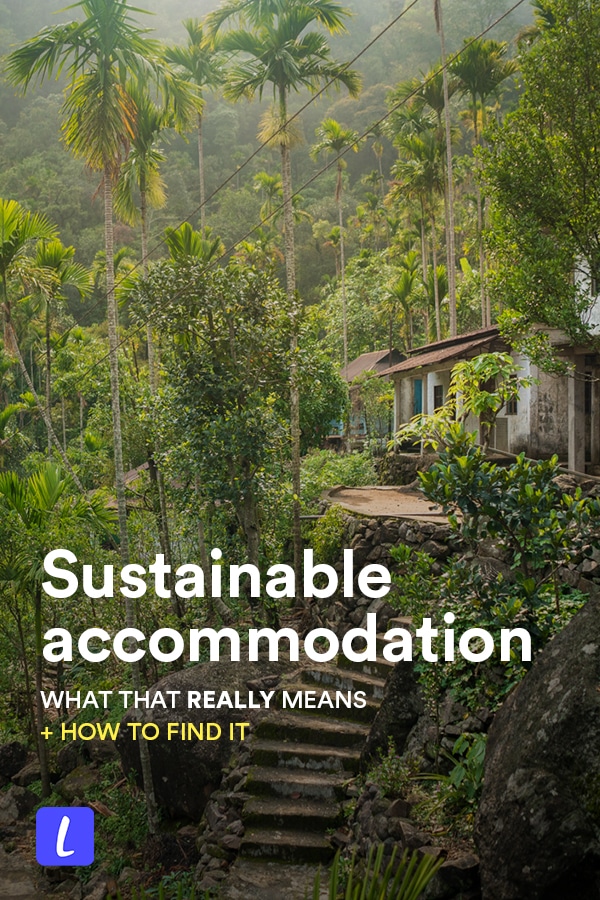
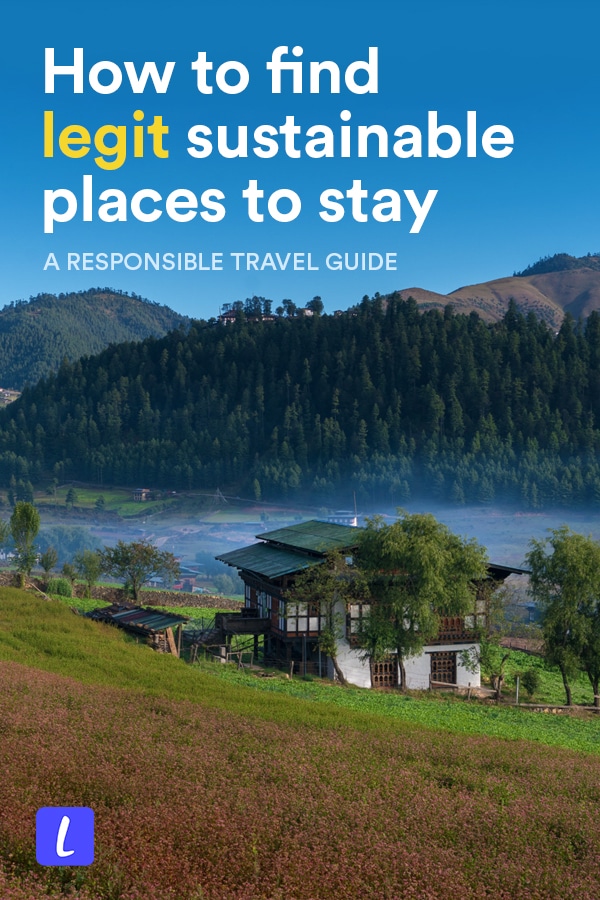


Love this post! I totally agree with all you are saying and I think the travel industry is missing a trustworthy place to find real sustainable accommodation. Which is why I recently created my own! Your tips really helped me define the real deal from the greenwashing ones 🙂
Your blog is an oasis in a world filled with negativity and hate Thank you for providing a safe space for your readers to recharge and refuel